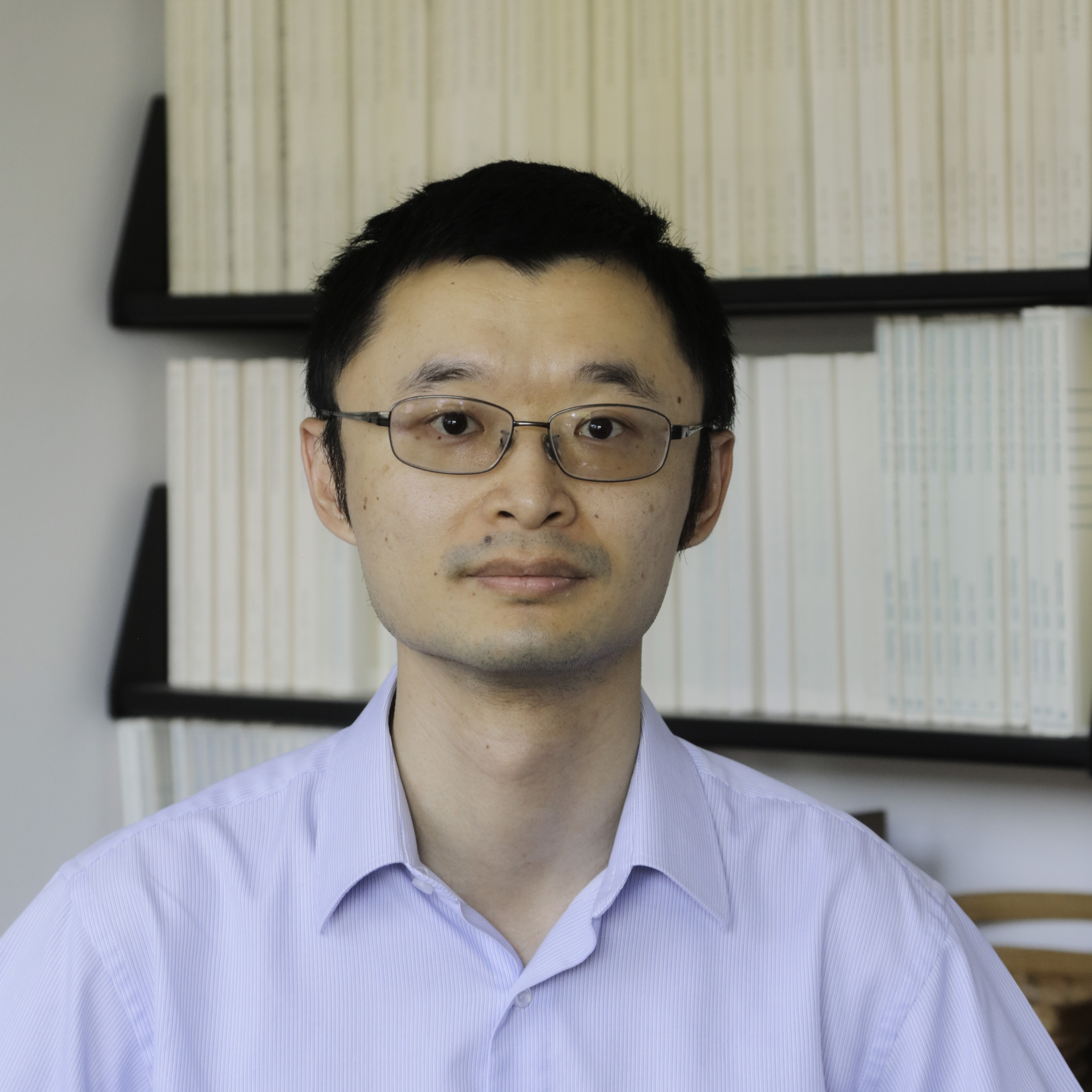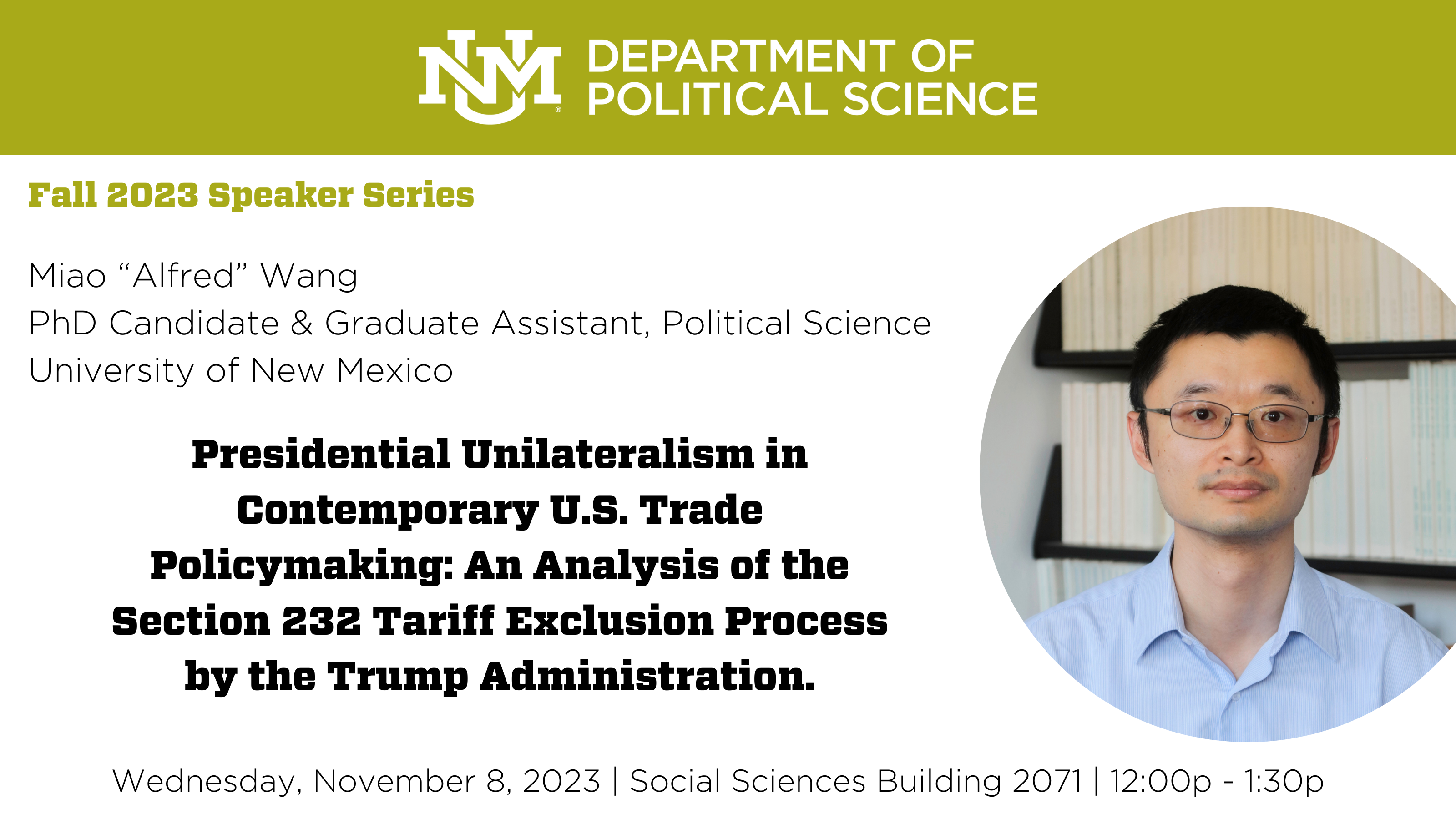Fall '23 Speaker Series: Miao "Alfred" Wang
Departmental Event

Start Date: Nov 08, 2023 - 12:00pm
End Date: Nov 08, 2023 - 01:30pm
Location: Social Sciences Building - Room 2071
If you are interested in an online broadcast of this talk, please contact Department Administrator Marliss McGarvey.
An event flyer can be viewed and downloaded at this link [PDF].
Title:
Presidential Unilateralism in Contemporary U.S. Trade Policymaking: An Analysis of the Section 232 Tariff Exclusion Process by the Trump Administration.
Abstract:
My doctoral dissertation explores the political factors that impact the tariff exclusion process of the Trump Administration’s punitive steel tariff. On March 1, 2018, President Trump declared a 25% tariff on certain steel imports by invoking Section 232 of the 1962 Trade Expansion Act and started a two-year Trade War (2018-2019). This tariff action was neither the first nor the largest move by the Trump Administration in the Trade War but remains a very extraordinary one due to its drastic market reaction, profound foreign policy ramifications, controversial statutory basis, and the historical, cultural, and political weights of the steel industry which the tariff aimed to protect. Despite these remarkable tariff measures and consistent trade-protectionist rhetoric, the Trump Administration was simultaneously issuing a very high percentage of exceptions to domestic companies which used the tariffed steel products. The remarkable inconsistency calls for an academic explanation. I argue that the Trump Administration took these contradictory presidential unilateral actions to achieve multiple goals at the same time: to pressure foreign trade partners and to protect vulnerable domestic industries on one hand and to avert hurting domestic users of the tariffed products on the other hand. When reviewing the tariff exclusion requests from across the country, the Trump Administration would exercise differentiation and prioritization in favor of constituencies with a higher share of the president’s supporters to maximize the utility of each tariff exclusion. Domestic electoral consideration is predicted to dominate President Trump’s most followed unilateral actions on the international trade issue.
Speaker Bio:
Alfred Wang is currently a doctoral candidate studying political science at UNM, with concentrations in American politics and comparative politics. His supervisor is Dr. Michael Rocca.

